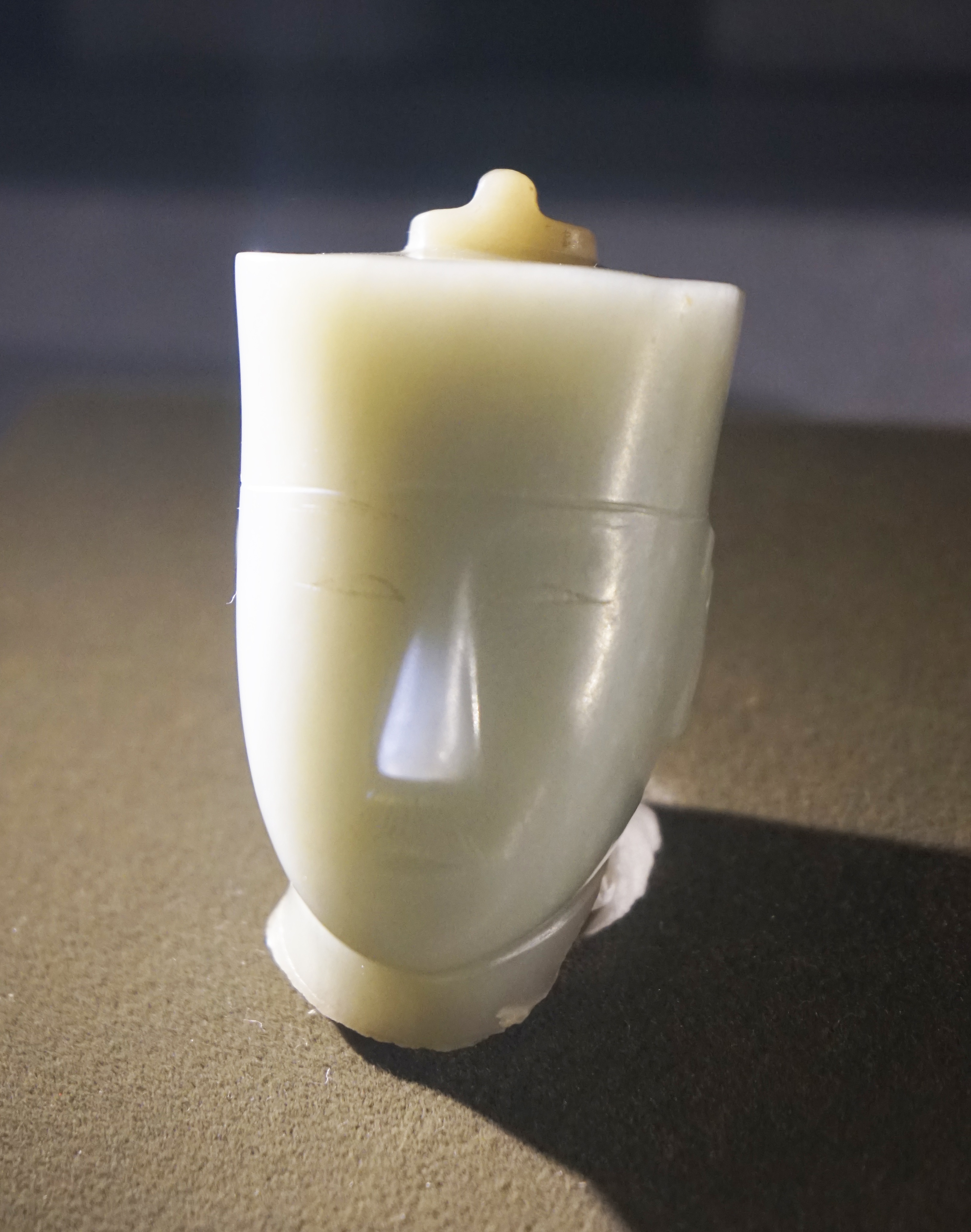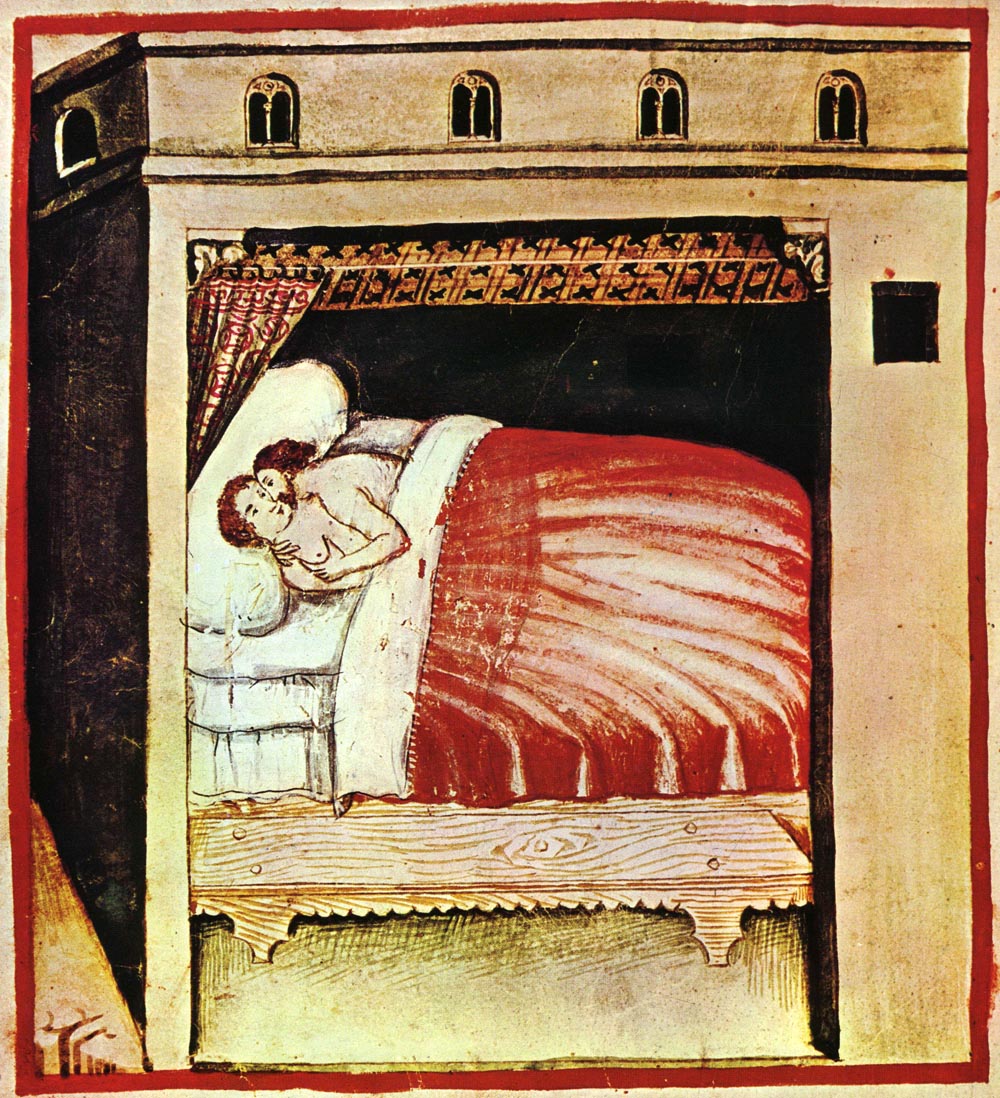|
Empress Shangguan
Grand Empress Dowager Shangguan (上官太皇太后) (personal name unknown) (89 BC(?) – 37 BC), also known as Empress Shangguan (上官皇后), Empress Xiaozhao (孝昭皇后) and Empress Dowager Shangguan (上官太后), was an Empress, Empress Dowager and Grand Empress Dowager during the Han Dynasty and wife of Emperor Zhao. She served as de facto regent during the interim period between the deposition of Marquis of Haihun until the succession of Emperor Xuan of Han in 74 BC. Her father was Shangguan An (上官安), the son of Shangguan Jie (上官桀). Her mother was the daughter of Huo Guang. She was a key figure in a number of political incidents during the middle Han Dynasty, and she spent her entire adult life as a Grand Empress Dowager and a widow without family. Both sides of her family were wiped out in two separate mass executions as punishment for being relatives of individuals accused of seeking to usurp the throne. She remains the youngest person in Chinese h ... [...More Info...] [...Related Items...] OR: [Wikipedia] [Google] [Baidu] |
Empress Wei Zifu
Wei Zifu (; died 91 BC), posthumously known as Empress Si of the Filial Wu () or Wei Si Hou (衛思后, "Wei the Thoughtful Empress"), was an empress consort during ancient China's Han dynasty. She was the second wife of the famous Emperor Wu and his spouse for 49 years. She stayed as his empress for 38 years, the second longest in Chinese history (behind only the 47-year reign of Empress Wang, the wife of Ming dynasty's Wanli Emperor, who lived over 1,600 years later). She was the mother of Emperor Wu's heir apparent Liu Ju and the great-grandmother of Liu Bingyi, as well as the older half-sister of the famed general Wei Qing, the younger aunt of Huo Qubing, and the step-aunt of Han statesman Huo Guang. Family background and early years Wei Zifu was born of humble means to a serf family. She was the fourth child and the youngest daughter of a lowly housemaid/servant at the household of Princess Pingyang (平陽公主), Emperor Wu's older sister. Her father presumably died ... [...More Info...] [...Related Items...] OR: [Wikipedia] [Google] [Baidu] |
Emperor Wu Of Han
Emperor Wu of Han (156 – 29 March 87BC), formally enshrined as Emperor Wu the Filial (), born Liu Che (劉徹) and courtesy name Tong (通), was the seventh emperor of the Han dynasty of ancient China, ruling from 141 to 87 BC. His reign lasted 54 years – a record not broken until the reign of the Kangxi Emperor more than 1,800 years later and remains the record for ethnic Chinese emperors. His reign resulted in a vast expansion of geopolitical influence for the Chinese civilization, and the development of a strong centralized state via governmental policies, economical reorganization and promotion of a hybrid Legalist–Confucian doctrine. In the field of historical social and cultural studies, Emperor Wu is known for his religious innovations and patronage of the poetic and musical arts, including development of the Imperial Music Bureau into a prestigious entity. It was also during his reign that cultural contact with western Eurasia was greatly increased, directly a ... [...More Info...] [...Related Items...] OR: [Wikipedia] [Google] [Baidu] |
Book Of Han
The ''Book of Han'' or ''History of the Former Han'' (Qián Hàn Shū,《前汉书》) is a history of China finished in 111AD, covering the Western, or Former Han dynasty from the first emperor in 206 BCE to the fall of Wang Mang in 23 CE. It is also called the ''Book of Former Han''. The work was composed by Ban Gu (32–92 CE), an Eastern Han court official, with the help of his sister Ban Zhao, continuing the work of their father, Ban Biao. They modeled their work on the ''Records of the Grand Historian'', a cross-dynastic general history, but theirs was the first in this annals-biography form to cover a single dynasty. It is the best source, sometimes the only one, for many topics such as literature in this period. A second work, the '' Book of the Later Han'' covers the Eastern Han period from 25 to 220, and was composed in the fifth century by Fan Ye (398–445). Contents This history developed from a continuation of Sima Qian's ''Records of the Grand Historian'', ... [...More Info...] [...Related Items...] OR: [Wikipedia] [Google] [Baidu] |
Emperor Yuan Of Han
Emperor Yuan of Han (Liu Shi 劉奭; 75 BC – 8 July 33 BC) was an emperor of the Chinese Han dynasty. He reigned from 48 BC to 33 BC. Emperor Yuan promoted Confucianism as the official creed of the Chinese government. He appointed Confucius adherents to important government posts. However, at the same time that he was solidifying Confucianism's position as the official ideology, the empire's condition slowly deteriorated due to his indecisiveness, his inability to stop factional infighting between officials in his administration, and the trust he held in certain corrupt officials. Family background When Emperor Yuan was born as Liu Shi in 75 BC, his parents Liu Bingyi and Xu Pingjun were commoners without titles. Bingyi was the great-grandson of Emperor Wu, and his grandfather Liu Ju was Emperor Wu's crown prince, until he was forced by Emperor Wu's paranoia into a failed rebellion in 91 BC while Bingyi was still just an infant. The aftermath of the failed rebellion ... [...More Info...] [...Related Items...] OR: [Wikipedia] [Google] [Baidu] |
Empress Huo Chengjun
Huo Chengjun () (died 54 BC) was an empress of the Chinese Western Han dynasty. She was the second wife of Emperor Xuan. Her father was the statesman Huo Guang, who served as regent for Emperor Zhao and who remained exceedingly powerful during Emperor Xuan's reign until his death in 68 BC. Her mother's name was Xian (). Family background It is not known when Chengjun was born to Huo Guang and Lady Xian. What is known is that she grew up in a household with such great power that in many ways, it regarded itself and was regarded as the real imperial household. She became accustomed to luxury living when she was young, and part of that was manifested in her customs of rewarding her servants with great wealth. She had an older sister who married Shangguan An, a son of Shangguan Jie; their daughter became Emperor Zhao's wife. Marriage In 74 BC, Emperor Zhao died at age 20. Huo initially selected his nephew, Prince He of Changyi as the new emperor. However, after Prince He qu ... [...More Info...] [...Related Items...] OR: [Wikipedia] [Google] [Baidu] |
Liu Ju
Liu Ju (; 128–91 BC), formally known as Crown Prince Wei (衛太子) and posthumously as Crown Prince Li (戾太子, literally "the Unrepentant Crown Prince", where Li is an unflattering name) was a Western Han Dynasty crown prince. He was the eldest son and the heir apparent to his father, Emperor Wu of Han, until his death at age 38 during the political turmoil that occurred during 91 BC. Liu Ju led an uprising against his father's army and died as a consequence of the rebellion. Emperor Wu sent soldiers to hunt Liu Ju down, so Liu Ju committed suicide by hanging himself. Liu Ju's two sons and the family hosting them all died when government soldiers broke into their house and killed everyone. Family background and birth Liu Ju's mother, Wei Zifu, was Emperor Wu's second wife. Emperor Wu's first wife was Empress Chen Jiao (who was also his older cousin). She was infertile and had a jealous personality. Moreover, when she was found employing witchcraft to curse Emperor Wu's ... [...More Info...] [...Related Items...] OR: [Wikipedia] [Google] [Baidu] |
Chinese Classic Texts
Chinese classic texts or canonical texts () or simply dianji (典籍) refers to the Chinese texts which originated before the imperial unification by the Qin dynasty in 221 BC, particularly the "Four Books and Five Classics" of the Neo-Confucian tradition, themselves a customary abridgment of the "Thirteen Classics". All of these pre-Qin texts were written in classical Chinese. All three canons are collectively known as the classics ( t , s , ''jīng'', lit. "warp"). The term Chinese classic texts may be broadly used in reference to texts which were written in vernacular Chinese or it may be narrowly used in reference to texts which were written in the classical Chinese which was current until the fall of the last imperial dynasty, the Qing, in 1912. These texts can include ''shi'' (, historical works), ''zi'' (, philosophical works belonging to schools of thought other than the Confucian but also including works on agriculture, Traditional Chinese medicine, med ... [...More Info...] [...Related Items...] OR: [Wikipedia] [Google] [Baidu] |
Prince He Of Changyi
Liu He (; 92–59 BC) was an emperor of the Chinese Han dynasty with the era name Yuanping (). Originally King (or Prince) of Changyi (), he was installed by the powerful minister Huo Guang as emperor in 74 BC, but deposed only 27 days later, and omitted from the official list of emperors. He lost his original kingdom of Changyi and was demoted to the rank of marquis. He was given the new fief of Haihun in modern Jiangxi Province and became known as the Marquis of Haihun (). Background and career as King of Changyi His grandfather is Emperor Wu of Han. His father, Liu Bo (劉髆), King Ai of Changyi (昌邑哀王) died in 88 BC, and he inherited his father's kingdom in 86 BC. Historical records imply that he was a toddler at that time. Liu Bo was a son of Emperor Wu of Han. After Emperor Wu's crown prince Liu Ju committed suicide in 91 BC, Liu Bo was among the candidates for the title of crown prince; the title ultimately went to young Liu Fuling, who succeeded Emperor ... [...More Info...] [...Related Items...] OR: [Wikipedia] [Google] [Baidu] |
Consummate
In many traditions and statutes of civil or religious law, the consummation of a marriage, often called simply ''consummation'', is the first (or first officially credited) act of sexual intercourse between two people, following their marriage to each other. The definition of consummation usually refers to penile-vaginal sexual penetration, but some religious doctrines hold that there is an additional requirement that no contraception must be used. The religious, cultural, or legal significance of consummation may arise from theories of marriage as having the purpose of producing legally recognized descendants of the partners, or of providing sanction to their sexual acts together, or both, and its absence may amount to treating a marriage ''ceremony'' as falling short of ''completing'' the state of being married, or as creating a marriage which may later be repudiated. Thus in some legal systems a marriage may be annulled if it has not been consummated. Consummation is also relev ... [...More Info...] [...Related Items...] OR: [Wikipedia] [Google] [Baidu] |
Concubine
Concubinage is an interpersonal and sexual relationship between a man and a woman in which the couple does not want, or cannot enter into a full marriage. Concubinage and marriage are often regarded as similar but mutually exclusive. Concubinage was a formal and institutionalized practice in China until the 20th century that upheld concubines' rights and obligations. A concubine could be freeborn or of slave origin, and their experience could vary tremendously according to their masters' whim. During the Mongol conquests, both foreign royals and captured women were taken as concubines. Concubinage was also common in Meiji Japan as a status symbol, and in Indian society, where the intermingling of castes and religions was frowned upon and a taboo, and concubinage could be practiced with women with whom marriage was considered undesirable, such as those from a lower caste and Muslim women who wouldn't be accepted in a Hindu household and Hindu women who wouldn't be accepted in ... [...More Info...] [...Related Items...] OR: [Wikipedia] [Google] [Baidu] |





